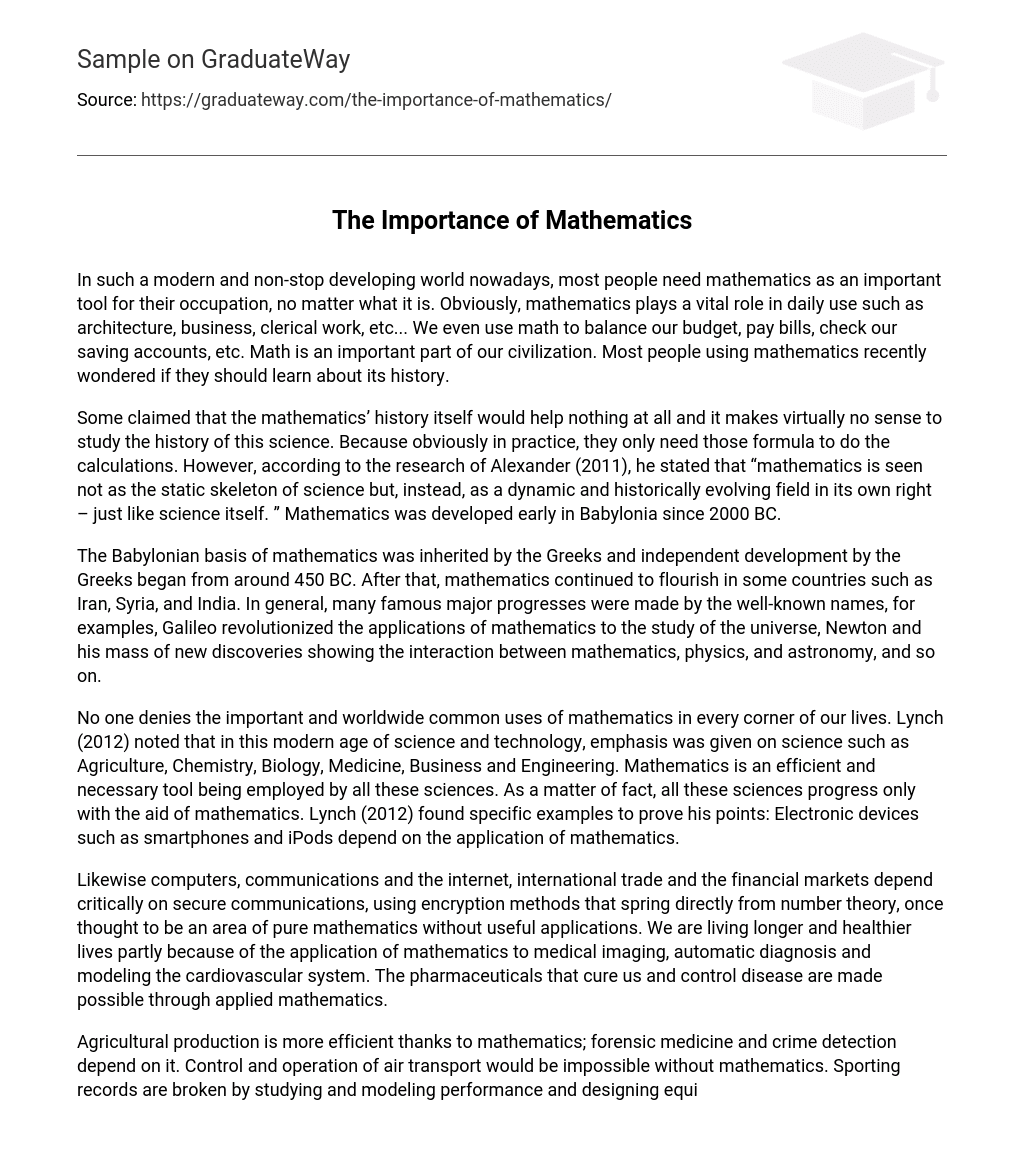In such a modern and non-stop developing world nowadays, most people need mathematics as an important tool for their occupation, no matter what it is. Obviously, mathematics plays a vital role in daily use such as architecture, business, clerical work, etc… We even use math to balance our budget, pay bills, check our saving accounts, etc. Math is an important part of our civilization. Most people using mathematics recently wondered if they should learn about its history.
Some claimed that the mathematics’ history itself would help nothing at all and it makes virtually no sense to study the history of this science. Because obviously in practice, they only need those formula to do the calculations. However, according to the research of Alexander (2011), he stated that “mathematics is seen not as the static skeleton of science but, instead, as a dynamic and historically evolving field in its own right – just like science itself. ” Mathematics was developed early in Babylonia since 2000 BC.
The Babylonian basis of mathematics was inherited by the Greeks and independent development by the Greeks began from around 450 BC. After that, mathematics continued to flourish in some countries such as Iran, Syria, and India. In general, many famous major progresses were made by the well-known names, for examples, Galileo revolutionized the applications of mathematics to the study of the universe, Newton and his mass of new discoveries showing the interaction between mathematics, physics, and astronomy, and so on.
No one denies the important and worldwide common uses of mathematics in every corner of our lives. Lynch (2012) noted that in this modern age of science and technology, emphasis was given on science such as Agriculture, Chemistry, Biology, Medicine, Business and Engineering. Mathematics is an efficient and necessary tool being employed by all these sciences. As a matter of fact, all these sciences progress only with the aid of mathematics. Lynch (2012) found specific examples to prove his points: Electronic devices such as smartphones and iPods depend on the application of mathematics.
Likewise computers, communications and the internet, international trade and the financial markets depend critically on secure communications, using encryption methods that spring directly from number theory, once thought to be an area of pure mathematics without useful applications. We are living longer and healthier lives partly because of the application of mathematics to medical imaging, automatic diagnosis and modeling the cardiovascular system. The pharmaceuticals that cure us and control disease are made possible through applied mathematics.
Agricultural production is more efficient thanks to mathematics; forensic medicine and crime detection depend on it. Control and operation of air transport would be impossible without mathematics. Sporting records are broken by studying and modeling performance and designing equipment mathematically (p. 12). It is also important in cooking especially when we need to weigh and measure certain ingredients before we actually start to cook. According to the famous Philosopher Kant, “a science is exact only in so far as it employs Mathematics. ” Every career uses some sort of math.
More importantly, doing math helps the mind in the process of reasoning and organizing out thoughts in a complicated situation or problems. We applied math to make our thinking clear, simple, and logical. Thus, the more students learn mathematics; the rationale is that their minds will eventually develop into logical entity that can resolve almost any difficult situations. Mathematics is such a useful language and tool in our formal educational system. Mathematics continues to grow at a phenomenal rate (O’Connor & Robertson, 1997). There is no end in sight, and the application of mathematics to science becomes greater all the time.





